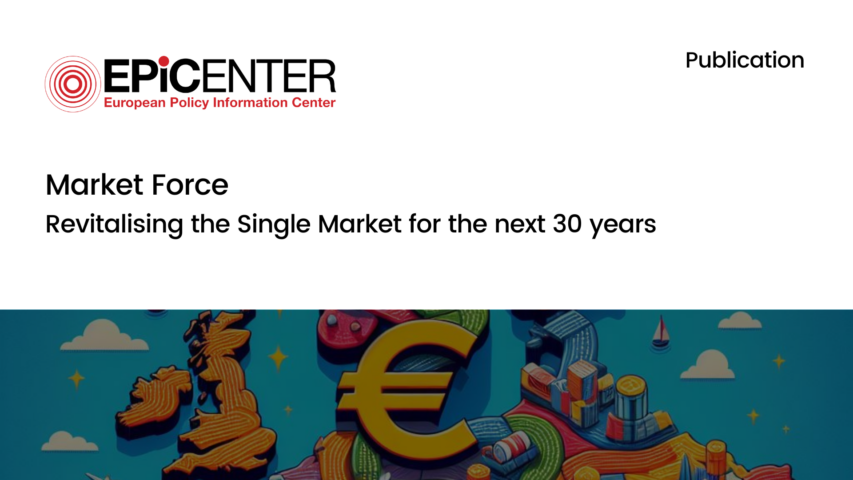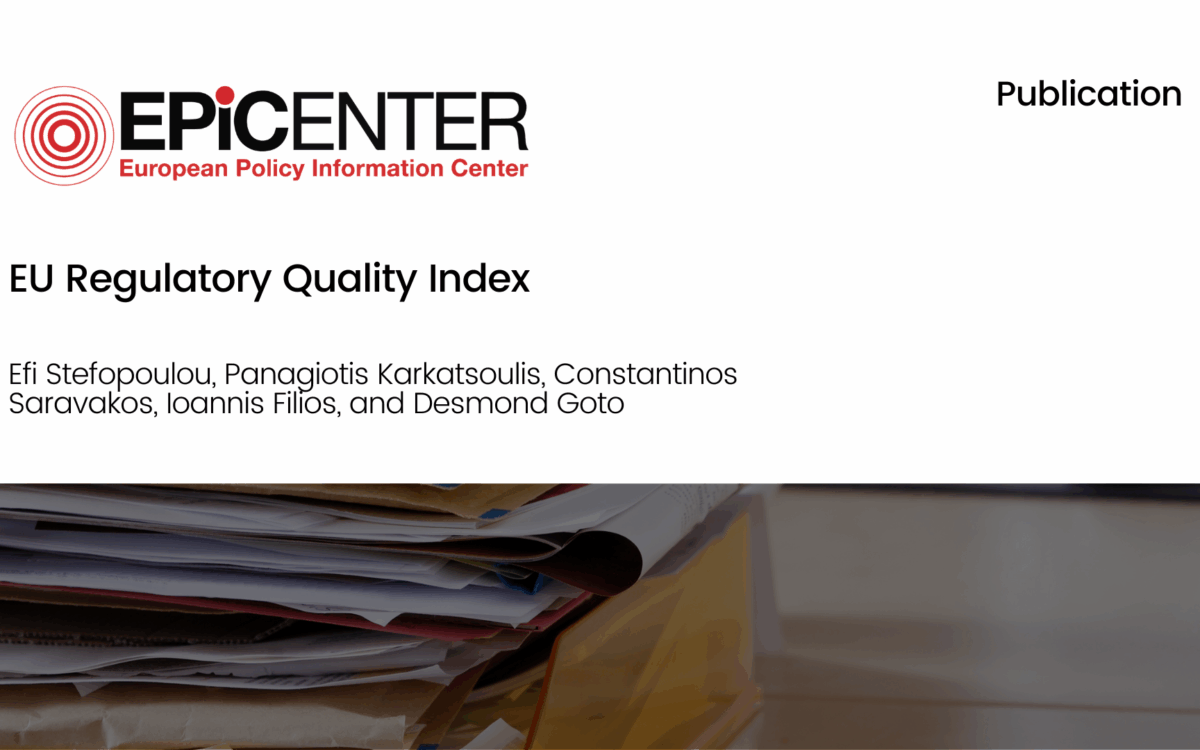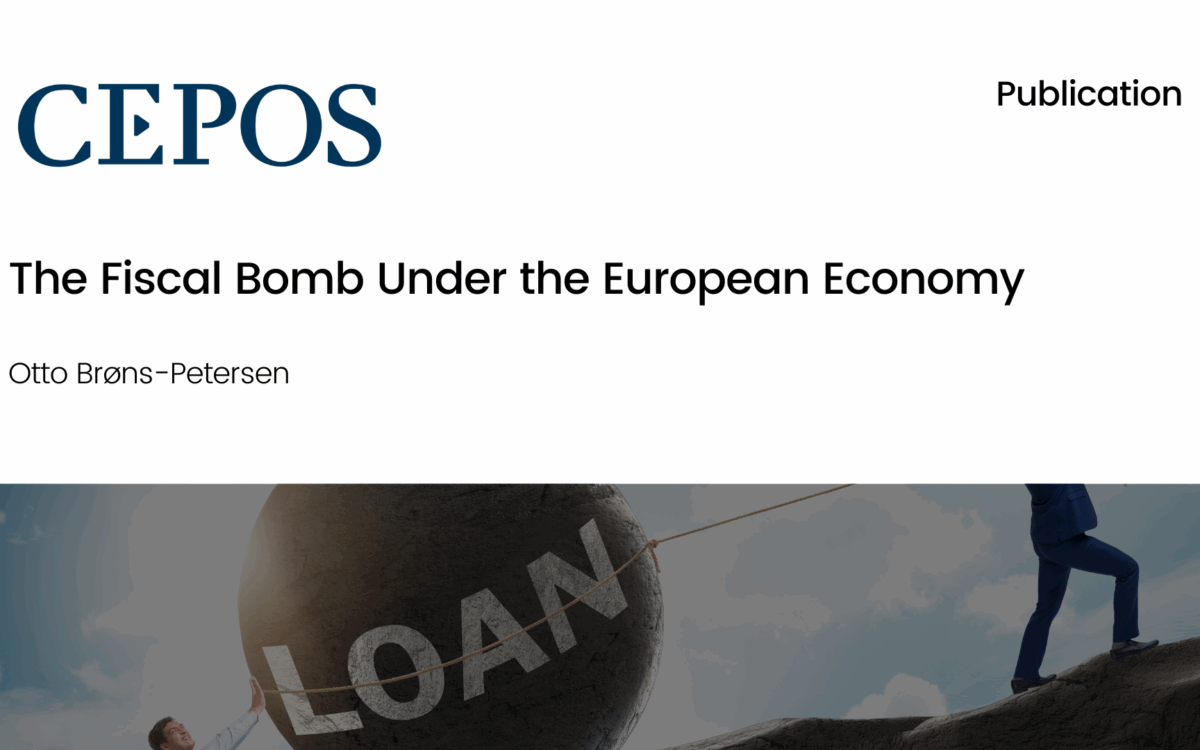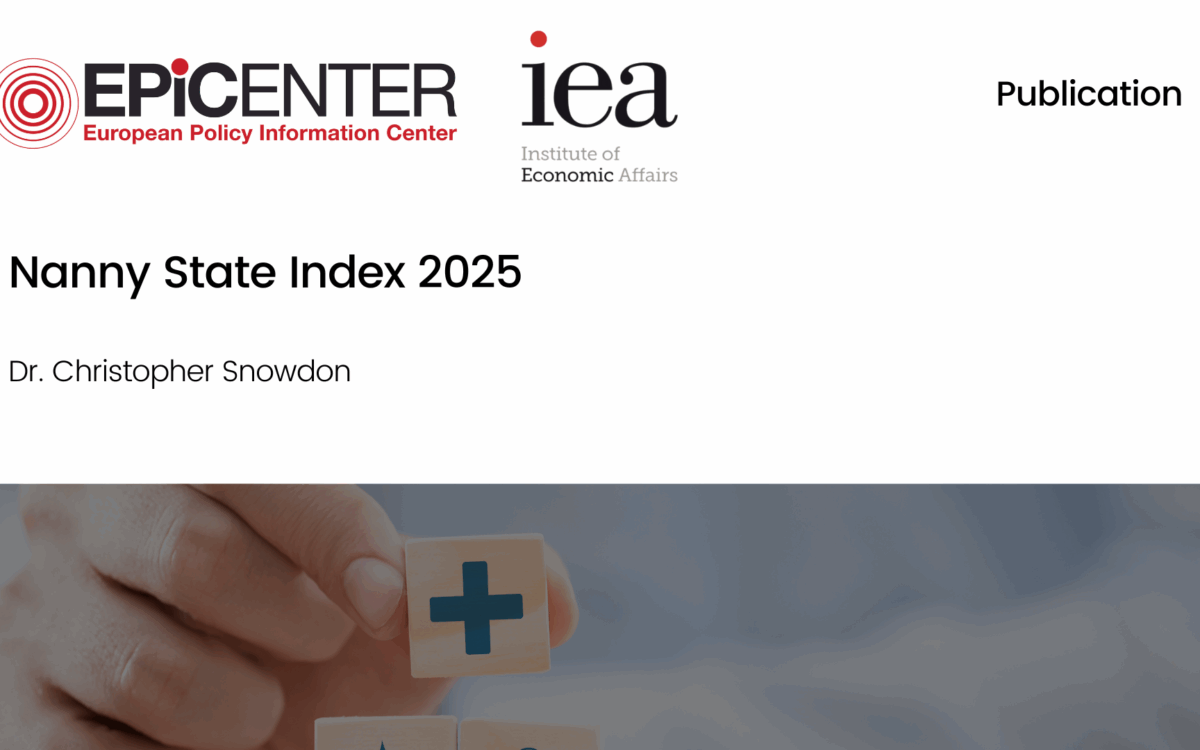Market Force

Market Force: Revitalising the Single Market for the next 30 years
Radovan Ďurana & Matej Bárta // 22 April 2024
The European Union's Single Market (SM) stands as a cornerstone of economic integration, fostering growth, and convergence among member states. Veld's 2019 study underscores the SM's pivotal role, indicating that without it, EU economies would face significant shrinkage, underlining its economic significance.
Particularly, the Central and Eastern European (CEE) countries have benefited, with GDP per capita and individual consumption soaring, driving them closer to the EU average.
However, a closer look reveals disparities, with some CEE states experiencing a slowdown in convergence, signalling the need for targeted policies to ensure sustained growth and integration.
The main conclusions of the report are:
- The EU Single Market (SM) has been pivotal for the growth of member states' economies, without it, EU economies would shrink up to 20.5%.
- SM membership has a significant impact on labour movement, incentivising workers to seek higher wages and better living standards in western bloc countries whilst sending money home.
- Increased restrictiveness in services trade, which has been especially pronounced in CEE, has impeded growth in the sector.
- The enforcement of EU legislation enforcement presents a mixed picture; despite best efforts to organise, a backlog of cases persists.
- Capital markets within the EU are significantly lagging behind the US/ The volume and frequency of investment inflows into the Single Market are thus heavily affected by its lack of market competitiveness.
- Rising state aid, largely due to green subsidies is posing a risk to competition within the SM through its heavily distortive effects.
- Occupational regulations are impacting a significant portion of EU workers, potentially leading to increased unemployment, like new platform work legislation, which disregards worker preferences, diminishing efficiency and increasing costs.
- Non-tariff measures disproportionately affect EU imports, particularly in food and chemical industries – raising consumer prices and worsening inflationary pressures.
- Mandatory ESG frameworks are imposing substantial reporting costs on businesses, disproportionally affecting SMEs, undermining overall competitiveness.
- The DMA, DSA, and AI Act risk stifling innovation and limiting freedoms in digital markets – further disincentivising sectoral growth and innovation.
The paper recommends that the EU:
- Prioritize the SM as a key EU objective, advocating for ambitious goals and trade barrier dismantling.
- Strengthen EU legislation enforcement to streamline procedures and reduce case backlogs.
- Liberalise occupational regulations, labour markets, and services sectors to enhance competitiveness.
- Decrease regulatory burden with a technology-neutral approach and harmonized permitting systems.
Address challenges in the digital sector by revising DMA, DSA, and AI Act to foster innovation and ensure market freedom.
Download or share this publication
View the PDF
EPICENTER publications and contributions from our member think tanks are designed to promote the discussion of economic issues and the role of markets in solving economic and social problems. As with all EPICENTER publications, the views expressed here are those of the author and not EPICENTER or its member think tanks (which have no corporate view).



